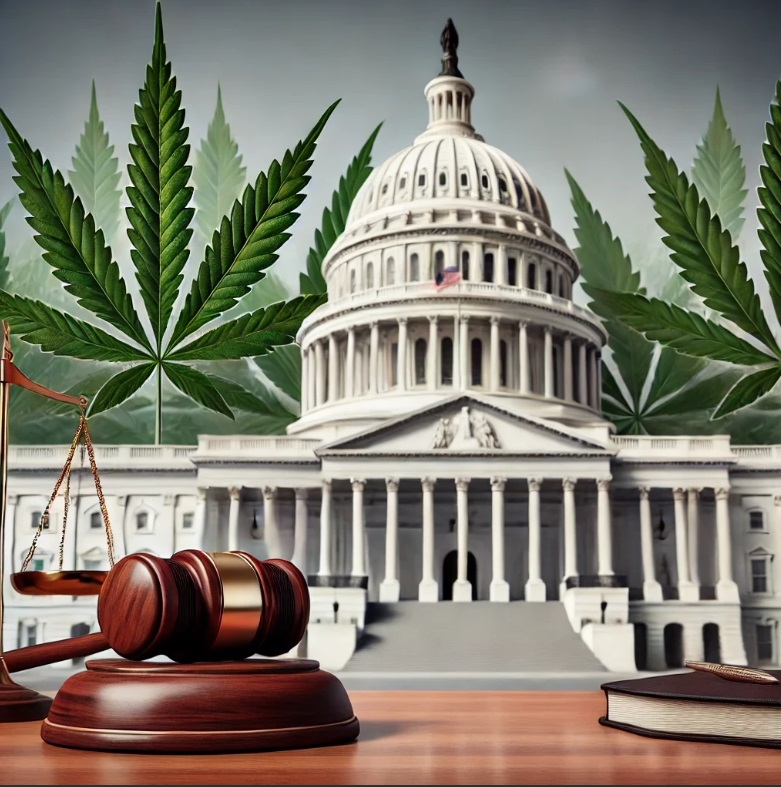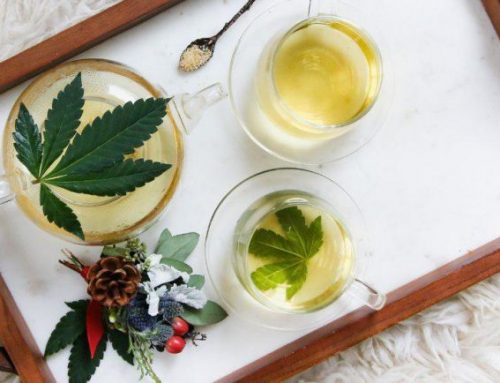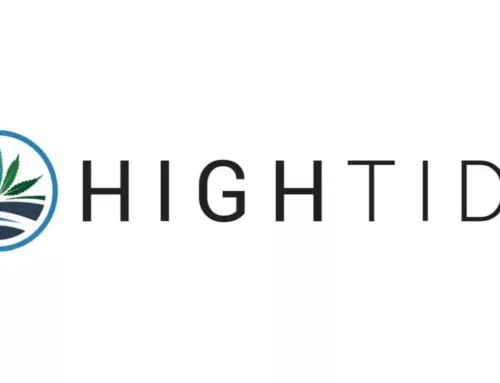Regulatory Challenges for Hemp Beverages in the USA
LOS ANGELES – The hemp beverage industry in the United States is growing rapidly, driven by consumer demand for wellness-focused and sustainable alternatives to traditional drinks. According to Fortune Business Insights, the U.S. cannabis beverage market is projected to reach $81.44 billion by 2032, supported by the legalization of cannabis products in several states.
Despite this promising trajectory, the industry faces significant regulatory hurdles that constrain its potential. Ambiguities in federal policies and a fragmented patchwork of state regulations create a challenging landscape for manufacturers and investors. To unlock the industry’s full potential and achieve sustainable growth, businesses must navigate evolving FDA policies and diverse state frameworks, making regulatory clarity and harmonization critical priorities.
The FDA’s Stance on Hemp Beverages
Although the 2018 Farm Bill legalized hemp products with less than 0.3% Delta-9 THC on a dry weight basis, the U.S. Food and Drug Administration (FDA) has not yet offered clear guidance for incorporating cannabinoids into food and beverages. By focusing on raw ingredients rather than finished products, the bill inadvertently allowed the widespread availability of Delta-8 and Delta-10 THC products. Updates to the Farm Bill, delayed until 2025, are expected to impose stricter limits, banning cannabis products with over 0.3% of any THC compound, further intensifying challenges for the hemp beverage industry.
For now, the FDA has not permitted the marketing of any cannabinoid as a dietary supplement or food additive, with reservations about safety, efficacy, and adverse effects. It has raised important challenges, including:
- Uncertainty Around Cannabinoid Safety
The FDA highlights insufficient research on the long-term effects of cannabinoids, their drug interactions, and risks to vulnerable populations, hindering their mainstream adoption in beverages. - Lack of a Regulatory Framework
The absence of formal regulations forces hemp beverage manufacturers to navigate a patchwork of legal gray areas, leading to inconsistent enforcement and business uncertainty. - Misinformation and Labeling Issues
The FDA’s warning letters over unverified health claims about cannabinoids have heightened compliance concerns for manufacturers, complicating marketing strategies and consumer education.
TTB Regulations on Alcohol Hemp-Infused Beverages
Another significant challenge arises from the Alcohol and Tobacco Tax and Trade Bureau (TTB), which imposes strict regulations on alcohol hemp-infused beverages, requiring detailed lab analyses for each batch or import to verify THC levels and ensure no controlled substances are present. Manufacturers must maintain on-site records for inspections. Labeling rules prohibit references, imagery, or language suggesting psychoactive effects, marijuana associations, or controlled substances, allowing the term “hemp” only in approved contexts like “hemp seeds” as an ingredient.
While these measures ensure safety and compliance, they create significant financial and operational burdens. High testing costs and restrictive labeling rules increase barriers to entry, limit marketing flexibility, and hinder innovation, making it harder for businesses to compete and scale in an already competitive market.
State-by-State Regulatory Patchwork
While federal oversight of hemp beverages remains unclear, individual states have taken varied approaches to regulating the market. This patchwork of state-level regulations creates a landscape that is both challenging and opportunistic for industry players:
- Progressive States
States like California, Colorado, and Oregon have implemented clear frameworks for CBD- and THC-infused drinks, emphasizing strict testing, labeling, and quality standards. These states serve as hubs for ingenuity, offering a stable environment for product development and launches. - Restrictive States
In contrast, states such as Idaho and Iowa impose strict restrictions or outright bans on hemp-infused beverages, citing federal alignment. These policies severely limit market access and stifle growth in these regions. - Inconsistent Rules
Even in states that permit hemp products, regulations vary. Some restrict cannabinoids to hemp-derived compounds with less than 0.3% THC, while others impose stringent requirements on labeling, packaging, and distribution. THC-infused beverages face additional scrutiny, including limits on potency, packaging standards to prevent accidental ingestion, and strict sales regulations aimed at curbing underage access.
This fragmented regulatory landscape complicates compliance, inflates operational costs, and creates hurdles for national expansion. Companies must often reformulate or relabel products to meet state-specific requirements, further limiting scalability. These disparities also hinder efforts to market products that combine therapeutic and recreational benefits, reducing growth potential and consumer accessibility.
Impact on Market Growth
The complex regulatory environment at both federal and state levels creates significant hurdles for the hemp beverage industry, impacting its growth, and accessibility:
- Barriers to Entry
Small businesses and startups often lack the financial and legal resources to navigate the intricate web of regulations governing hemp beverages. This disproportionately affects hemp-infused products, which require additional testing, labeling, and distribution compliance. As a result, market diversity suffers, and innovation is stifled, leaving the sector dominated by larger, well-funded players. - Investor Reluctance
Regulatory uncertainty deters investors, slowing the flow of capital into the industry. Cannabis beverages, with their higher legal and reputational risks, face even greater challenges in attracting funding, hindering market growth and infrastructure development. - Consumer Confusion
Unclear labeling and inconsistent messaging about the legality and safety of hemp beverages erode consumer trust. The difficulty in distinguishing between CBD- and THC-based products complicates purchasing decisions, particularly in regions with stricter regulations, slowing adoption rates. - Regional Disparities
States with progressive policies offer growth opportunities, while restrictive states impose significant limitations through bans or tight regulations on THC-infused products. This uneven regulatory landscape concentrates market development in permissive regions, creating an uneven playing field.
Perspective for Hemp Beverage Brands
The hemp beverage market poses unique challenges, but brands can navigate these hurdles and thrive by adopting a strategic approach:
- Prioritize Regulatory Compliance
Understanding and adhering to federal and state regulations is essential. Brands must stay ahead of changing federal and state laws by investing in legal expertise, implementing rigorous testing protocols, and maintaining detailed records of formulations and testing. These steps ensure compliance and build credibility with regulators and consumers. - Differentiate Through Innovation
Unique offerings, such as functional beverages combining cannabinoids with adaptogens or vitamins, can provide a competitive edge. Sustainable packaging and ethical sourcing practices further appeal to environmentally conscious consumers. - Build Consumer Trust
Clear labeling that distinguishes CBD from THC products is essential for building consumer confidence. Educational campaigns can address misconceptions, highlight benefits, and drive awareness, supported by collaborations with trusted influencers and wellness professionals. - Collaborate and Advocate
Joining trade associations and advocacy groups allows brands to push for regulatory improvements and standardized practices. Partnerships with manufacturers, researchers, and suppliers foster innovation and address safety concerns, while evidence-based research strengthens marketing credibility. - Optimize Operations for Scalability
Efficient, adaptable operations are vital in navigating regulatory fragmentation. State-specific strategies ensure compliance while maintaining consistent quality. Partnering with experienced distributors and using data analytics to track market trends can further enhance scalability and efficiency. - Secure Investment and Build Financial Resilience
To manage the capital-intensive nature of the industry, brands should diversify funding sources through venture capital, partnerships, and crowdfunding. Clear business plans addressing regulatory risks and market potential are key to attracting investors. Streamlined production methods can help sustain profitability amid high compliance costs. - Adapt to Regional Opportunities
Brands can leverage progressive states as testing grounds for new products and strategies, while THC-free offerings open doors in restrictive markets. Tailored branding and messaging for local preferences and regulations enhance market penetration and adaptability.
The Bottom Line
The U.S. regulatory landscape for hemp beverages is a complex web of federal and state policies, but the market’s potential remains significant. Realizing this potential depends on clear FDA guidelines, unified state regulations, and collaborative industry efforts. Addressing these challenges could foster a thriving cannabis beverage market, offering innovative, health-focused products while maintaining safety and compliance. Transparency and cooperation are key to balancing therapeutic purposes with responsible growth, ensuring a sustainable future for hemp-infused beverages.
Author Hunter Smith
Copyright Highly Capitalized Network and New Beverage Partners © 2025. All rights reserved.
Thank you to New Beverage Partners and Hunter Smith for collaborating on this article.
New Beverage Partners, led by Hunter Smith, is a key incubator for hemp beverage and gummies brands, offering expert guidance in marketing, manufacturing, distribution, and compliance. Backed by an extensive network of industry specialists, they help brands successfully enter and thrive in the market.
Hunter Smith brings 15 years of experience as a proven leader in beverage production. He has received national awards for quality and marketing, sold over 15 million cans across 13 states, led teams of over 100 employees, managed P&L, and contributed to driving a company toward a $10 million annual revenue trajectory pre-COVID. As Co-Chair of Government Affairs for the Craft Brewers’ Guild, he has also helped shape industry legislation.
Hunter is also the founder of Grow Cannabis, the first brand in hemp beverages to position itself directly against alcohol, offering consumers a compelling alternative.
To learn more about elevating and growing your hemp beverage or gummies brand, contact Hunter Smith and the New Beverage Partners team. Visit www.newbeveragepartners.com or email [email protected].






























